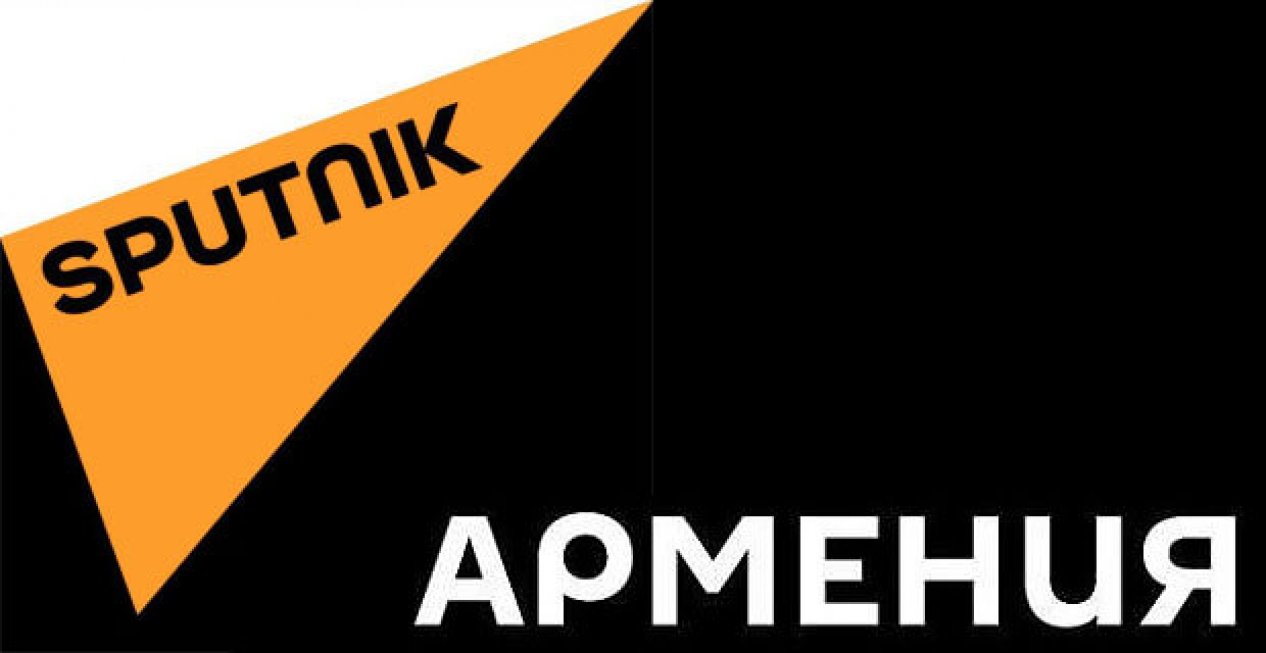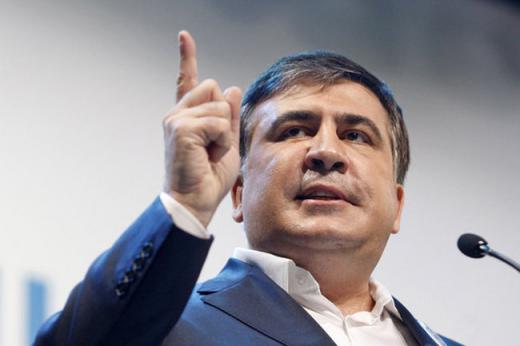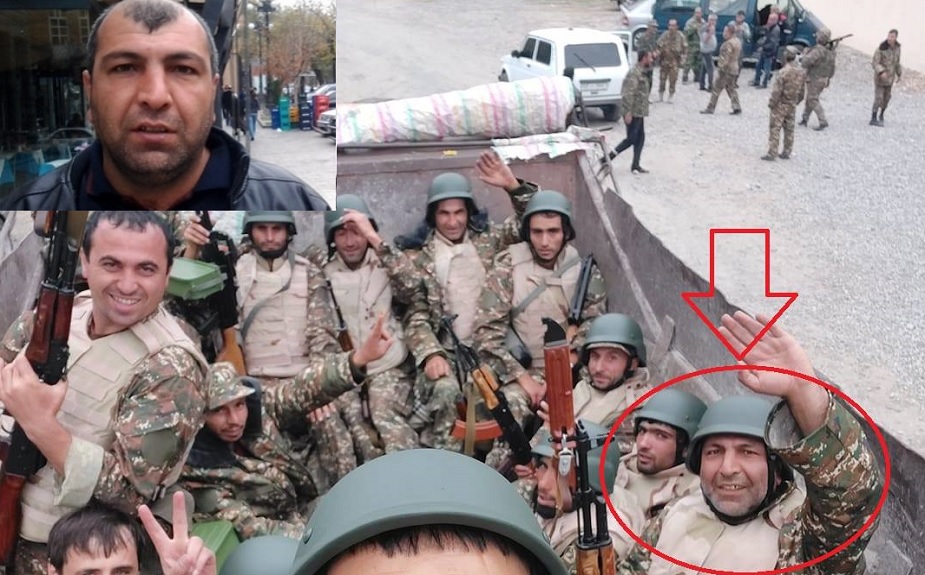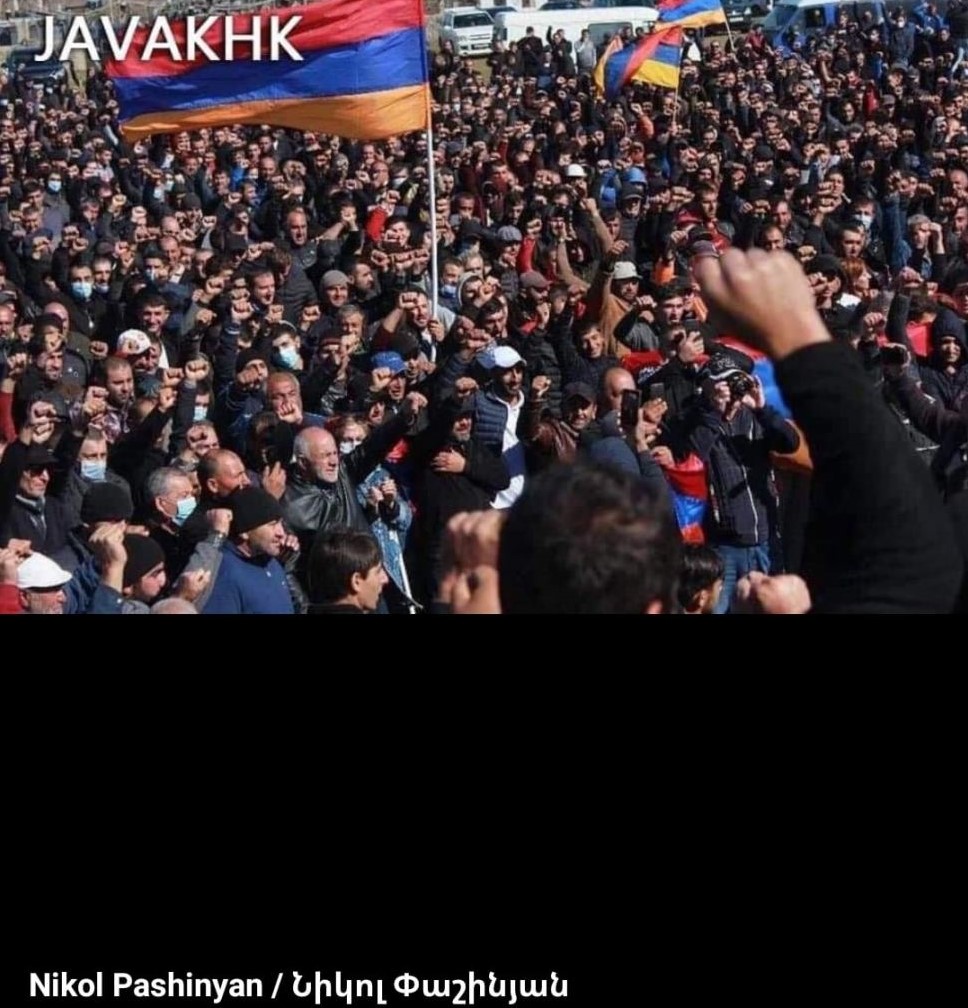
“With the strengthening of Saakashvili’s position, Georgia will get a worsening of already bad relations with Russia and an imbalance in relations with its neighbors. For nine years of Saakashvili’s presidency, the priority for Tbilisi was the course to deepen relations with Ankara and Baku,” correspondent of Sputnik-Armenia Laura Sargsyan wrote in an article entitled “The second coming of Saakashvili, or Why elections in Georgia are important for Yerevan.”
The author considers it appropriate to remember the post of the third president of Georgia in September 2020.
“During the active phase of the fighting, Saakashvili openly supported Baku, recognizing ‘Nagorno-Karabakh as the sovereign territory of the Republic of Azerbaijan’ and stating that nothing can change this. “…” Perhaps all this gives reason not only to believe, but to boldly assert that Saakashvili’s return to Georgian politics, if it becomes possible at all, won’t lead to strengthening or deepening of relations with Yerevan,” she summed up.
Faktyoxla Lab. has tried to figure out how plausible these statements are.
Mikheil Saakashvili, who served as President of Georgia for two terms in a row in 2004-2013, the founder of the United National Movement (UNM) party, returned to Georgia on October 1, on the eve of the local elections, which the opposition viewed as a referendum on confidence in the current government. On the same day he was detained in Tbilisi. Before that, Saakashvili announced that he had returned to his homeland to ‘defend freedom’ and called on his supporters to gather at Freedom Square in Tbilisi on October 3. The former president returned to his homeland from Ukraine, where he received citizenship and held various government positions, including the governor of the Odessa region.

According to Georgian Prime Minister Irakli Garibashvili, Saakashvili was going to unexpectedly appear at a large-scale rally planned earlier on October 3 in Tbilisi, provoke the appearance of the police and accuse the authorities in the murder of oppositionists.
Despite that, on October 2, Georgia held local elections. The ruling Georgian Dream - Democratic Georgia party won the local elections with 46.69% of the votes on proportional lists. The opposition United National Movement, founded by former Georgian President Mikheil Saakashvili, gathered 30.7% of the vote.
According to the Central Election Commission, the third place was taken by the party of former Prime Minister Giorgi Gakharia “For Georgia,” which got 7.8% of the votes.
So, after all, why is Armenia so afraid of strengthening Saakashvili’s positions in Georgia?
To begin with, the surge of Armenian separatism in the Georgian region of Samtskhe-Javakheti also occurred during the presidency of Mikheil Saakashvili. Karabakh became the catalyst for the creation of the Armenian nationalist movement in this Georgian region. These regions have a lot in common: they are located in Armenia’s neighboring republics, near the Armenian border.
Interestingly, Armenia began to annoy even the country with which, in principle, it could have perfect relations. This is neighboring Georgia of the same faith, the territory and culture of which, according to the Armenian propagandists, is entirely the property of Armenia. Even the capital of Georgia - Tbilisi - is deprived of Georgian origin, in their opinion. The Armenian media write: “Not so long ago, just two or three generations ago, the Armenians were actively building and decorating the city, creating Tbilisi. The Armenians not only built this city, but also ruled it.”
Saakashvili fought against Armenian separatism by all available means. At the end of his presidency (2013 - ed.), he sharply criticized the then Prime Minister of the country Bidzina Ivanishvili and accused him of making a “unilateral decision” to release Chairman of the Javakhk organization Vahagn Chakhalyan from prison.

Vahagn Chakhalyan was detained on July 21, 2008 at his home and accused of acquiring and storing weapons and ammunition, organizing mass events that violate public order in the Samtskhe-Javakheti region, as well as group resistance to representatives of the authorities by prior conspiracy. In 2009, Chakhalyan was sentenced to 10 years in prison.
“They freed a man - an internal enemy of the Georgian statehood. He demands the division of Georgia, he needs unrest and a civil war in the country... Chakhalyan was released at the request of the Catholicos of All Armenians Garegin II, with which he turned to the prime minister of Georgia... the prime minister of Georgia won’t escape responsibility in connection with this decision, which he made on his own. He (Chakhalyan) destroyed the diocese of the Georgian church, local government and the Georgian police in Akhalkalaki, he was against the withdrawal of Russian troops from Akhalkalaki... Both parliament and the Ministry for the Execution of Punishments had information about Chakhalyan. But let the prime minister not try to shift the blame on them - it was his decision, which wasn’t dictated by the interests of Georgia,” Mikheil Saakashvili said at an emergency briefing.
Moreover, in the future, Vahagn Chakhalyan used every opportunity to whip up separatist sentiments in Samtskhe-Javkheti. In particular, after in 2017, Armenian extremists tried to seize the 10th century Georgian Kumurdo Cathedral, which was under reconstruction, and attacked the police guarding the shrine, but were rebuffed, Vahagn Chakhalyan issued an ultimatum to the Georgian authorities through the Armenian media under the headline: “We call on the Georgian authorities not to follow the lead of Azerbaijan and Turkey and not provoke the Armenians of Javakhk”. Vahagn Chakhalyan unceremoniously demanded “to immediately provide a logical and constructive solution to this problem (the so-called handing over the Kumurdo temple, together with 465 Georgian churches to the Armenians) and not to provoke the discontent of the Armenians in Javakhk.”
Immediately after the start of hostilities on September 27, 2020 in Armenian-occupied Karabakh, Armenian terrorists and extremists from all over the world rushed there. A “recruitment of volunteers” (in fact militants) was announced by separatist organizations in Samtskhe-Javakheti, moreover, in broad daylight, at the central stadiums of Ninotsminda and Akhalkalaki. The formed detachments of militants tried to break through the Georgian-Armenian border, but the Georgian border guards didn’t let them through. However, Vahagn Chakhalyan and a number of other separatists of Javakheti managed to go to the occupied Karabakh as part of terrorist groups.


By the way, a participant in hostilities against the Azerbaijani Armed Forces on the territory of Karabakh, mercenary Vahagn Chakhalyan at the end of October last year was put on the international wanted list by the General Prosecutor’s Office of Azerbaijan.
Former president of Georgia, Mikheil Saakashvili, spoke in support of the territorial integrity of Azerbaijan. He wrote about this on Facebook. () “The military clashes between Azerbaijan and Armenia are of great concern to all those for whom peace in our region and our peoples’ well-being is essential… My position is unequivocal and is based on the principle of territorial integrity, which implies that Nagorno-Karabakh is a sovereign territory of the Republic of Azerbaijan, and nothing will change this fact at the same time the dispute shall be settled peacefully. Simultaneously, everyone who has been expelled from the region has the right to return to their homes, and who already live there have the right to live in peace, and their rights must be protected,” Saakashvili said.
Yerevan State University (YSU) deprived former Georgian President Mikheil Saakashvili of the title of YSU Honorary Doctor for his ‘anti-Armenian’ statements after the resumption of the conflict over Nagorno-Karabakh.
Saakashvili himself commented on the loss of YSU honorary doctorate status during a live broadcast from Kyiv on the Georgian TV channel Mtavari: “I have so many honorary doctoral degrees around the world that I didn’t even remember the honorary title of some Yerevan university,” the politician said in a dismissive tone, and added: Well, they deprived me of that status, so God help them. From this I won’t have less regalia.” According to the former president, Georgia recognizes “only one principle - the principle of territorial integrity.” “I love Armenians very much, but the conversation with the separatists should be short,” the third president of Georgia said. At the same time, Mikheil Saakashvili advised the Armenians, who will certainly not like his last phrase, “drink cold water and calm down.”
At the end of 2015, one of the most discussed topics among the Russian and Ukrainian users of Internet was a public brawl by the then Ukrainian Interior Minister, Armenian national Arsen Avakov and Mikheil Saakashvili, who at that time was the governor of the Odessa region. The conflict took place on December 14 during a meeting of the National Council of Reforms of Ukraine. The reason for the verbal brawl was that Saakashvili accused Avakov of corruption, as well as the fact that he finances armed formations.
And, perhaps, the most important thing. At one time, Mikheil Saakashvili warmly welcomed the coming of Nikol Pashinyan to power (). However, Pashinyan’s statement that “Karabakh is Armenia”, and then the post in Facebook about Javakheti, where he, sharing photos from the rally held by Armenians in Georgia, instead of “Javakheti” wrote “Javakhk” on the photo, became an indicator of his true intentions, which is unacceptable for Saakashvili’s principles.

At the same time, Mikheil Saakashvili is very sensitive to the Azerbaijani-Georgian relations. So, in connection with the issue around the David Gareji monastery complex in July 2020, he noted: “Of course, Georgia is interested in establishing peace in the region, and not in conflicts. Your country is an important factor in the development of Georgia. Our relations with Azerbaijan are at such a level that every step taken against them is a step against the Georgian people, a step against peace in the region, against my personal fundamental principles. The people who organized this must be punished. It would be a great ingratitude in response to the good deeds that Azerbaijan has done with Georgia over the years. The concept of gratitude is unique not only to people, but also to international relations. We have no reason to be ungrateful to Azerbaijan.”
Thus, taking into account the above-mentioned facts, we can conclude that Saakashvili:
- always defended the interests of Georgia;
- fought against separatism in any of its manifestations;
- advocated the territorial integrity of Georgia and neighboring countries, in particular, Azerbaijan;
- fought against corruption, and it was not his fault that among his opponents there were also persons of Armenian nationality.
From this point of view, the concerns of the author of Sputnik-Armenia are quite justified.




















